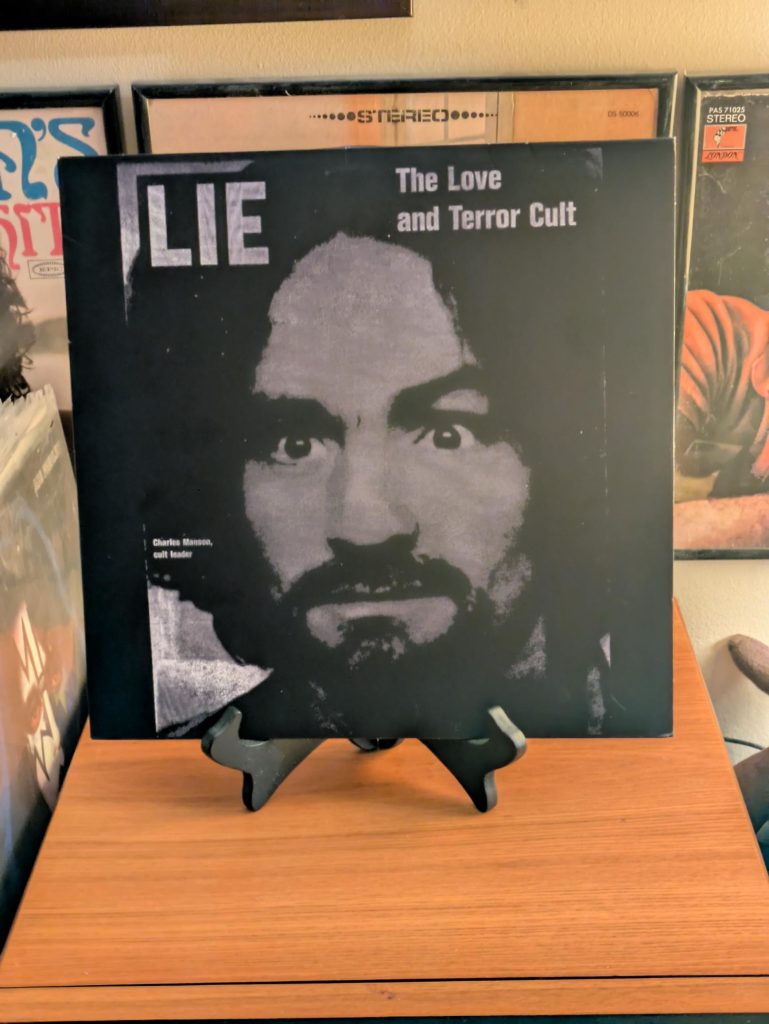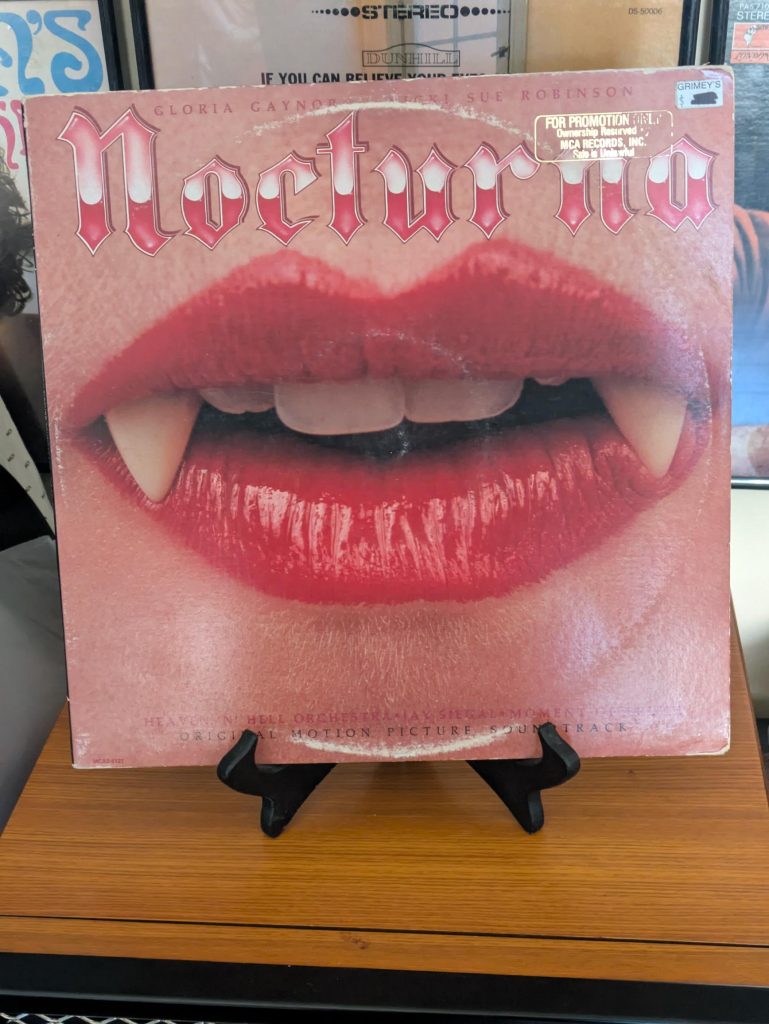- Hayley Mills – Let’s Get Together with Hayley Mills (1962)
In 1964 actress Hayley Mills’ mother mortified her when she called up a boy she liked and asked him to take her daughter out on a date. That boy was George Harrison. Hayley’s date with “the quiet Beatle” would be her greatest rock n’ roll adventure, but a few years before The Beatles had even cut their first record, Hayley Mills had her own hit on the Billboard Charts, “Let’s Get Together,” which introduced rock music to Disney movies. How Hayley Mills became the unlikely performer who brought rock n’ roll to Disney's big screens, her “dream date” with George Harrison, and a look at Walt Disney Production’s earliest foray into rock n’ roll. Extra: Darlene Gillespie, Annette Funicello, Tommy Sands, The Sherman Brothers and the recording Disney Productions buried so that Hayley Mills could have a hit.
- Charles Manson – Lie: The Love and Terror Cult (1970)
In 1970 rock n’ roll insider Phil Kaufman received a collect call from the state pen. On the other line was career criminal Charles Manson, awaiting trial for the Tate-LaBianca murders, who had one message for Kaufman – “Get my music out.” The result was the creation of Charles Manson’s only studio album, “Lie: The Love and Terror Cult.” The story of Phil Kaufman, and the role he played in the production and release of one of the most notorious albums ever made, and how the recording sessions may have connected to the crimes that made Charles Manson one of the most notorious villains of the 20th Century. Extra: Is Charles Manson’s music actually good, or do critics have difficulty separating the music from the crimes?
- Twin Temple – Twin Temple (Bring You Their Signature Sound…Satanic Doo Wop) (2018) and Twin Temple – God is Dead (2023)
Alexandra and Zachery James may look like a nice normal goth couple down the street, but behind their classic style and good looks are two of the most prolific Satanists in our current society. One of the most interesting and original acts in music today, Twin Temple, is taking the niche genre of “occult rock” and placing it in a different era of rock n’ roll, creating a genre all their own they call “Satanic Doo Wop.” Provocative, fearless and wickedly funny, Twin Temple have shocked Conservative society and caused controversy while preaching their core Satanic values through song – empowerment, inclusion and the freedom of expression. In our current hellscape, are Twin Temple the rock n’ roll anti-heroes we need?
- Various Artists – Nocturna Original Motion Picture Soundtrack (1979)
When is a horror soundtrack a Disco album? When it’s “Nocturna: Granddaughter of Dracula.” In 1979, an unlikely film about the Disco dancing granddaughter of pop culture’s most famous vampire hit theatres and got no attention, but left behind an incredible Disco album featuring tracks by Gloria Gaynor, Vicki Sue Robinson, Moment of Truth and….the guy from the Tokens? Anything is possible in the world of Nocturna! A deep dive into the Disco vampire film you’ve never heard of, the album it spawned, and a love letter to the woman who made it all come together, actress/producer/belly dancer/visionary Nai Bonet. Come on and get down with Nocturna, and boogie until the sun comes up. Extra: Nai Bonet teaches you to do “The Jelly Belly.”
- Jimmy Thudpucker – Jimmy Thudpucker’s Greatest Hits (1977)
Many fictional characters have released albums, but few are as good as the one released by Jimmy Thudpucker. A character from Gary Trudeau’s award winning and ground breaking newspaper comic strip “Doonesbury,” “Jimmy Thudpucker’s Greatest Hits” was an experiment in hyperreality that crossed a three year period via a novelty single, a critically acclaimed animated feature and a full length album containing some of the best 70’s pop that you’ve never heard. Featuring legendary session musicians of the era,, trying to understand “Jimmy Thudpucker’s Greatest Hits” is like peeling an onion, with layer and layer of surprises opening wormholes from our world to the world of Doonesbury. Extra: Discovering the music of session singer Renee Armand, and….Keith Moon? How did he get on this album?
- The Ventures – The Ventures (Play the Batman Theme) (1966)
In 1966 comic book superhero Batman and Robin came to television screens in a colorful action-comedy spoof starring Adam West and Burt Ward in the roles of The Dynamic Duo, starting a wave of Bat-Mania throughout the world. An overnight sensation, the program not only had memorable heroes and villains, but one of the most recognizable and beloved television theme songs of all time which quickly became the most recorded song of 1966. A deep dive into the history and the lore of “The Batman Theme,” with special attention to guitar group The Ventures’ 1966 release “The Ventures (Play the Batman Theme).” Bonus: The story of when an eleven year old Sam Tweedle bought his first vintage used record.










































































